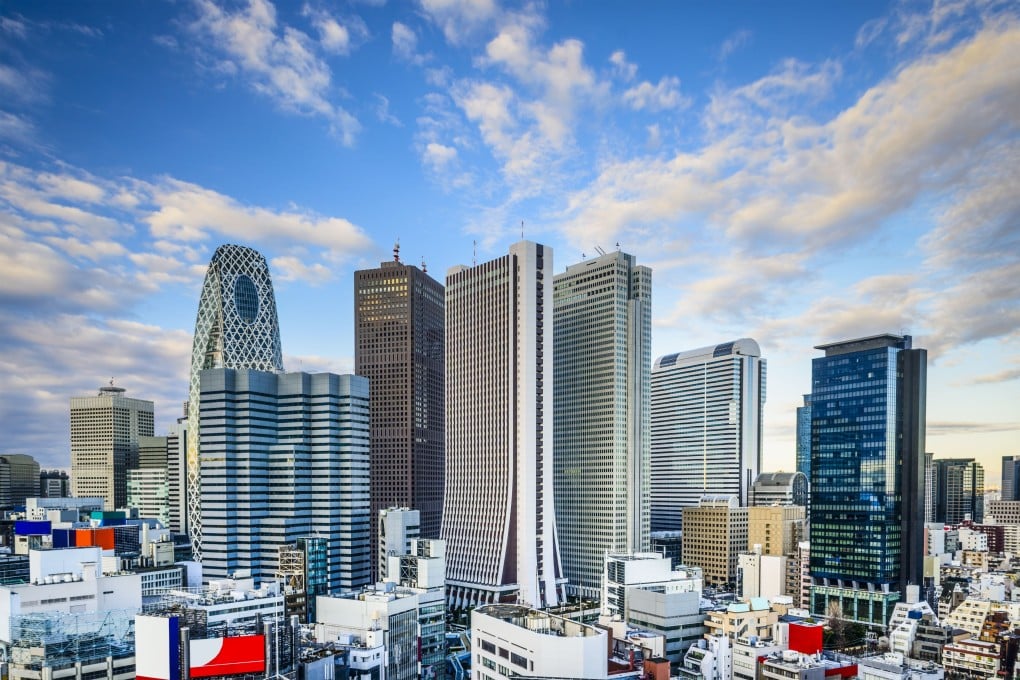Shinagawa redevelopment could create Tokyo's second CBD
A brand new station, ambitious infrastructure projects and extensive redevelopment are making one of Tokyo's best-connected districts even more appealing for investors.

[Sponsored Article]
The 2020 Olympics will start Tokyo's next decade with a bang, but construction activity in Japan's dynamic capital isn't planning to slow down for a long time yet. Powered by unprecedented levels of public and private investment and strong support from the Abe government, major commercial, residential and infrastructure projects will continue to transform Tokyo's central wards through to 2027.
Some of these projects will be ready in time for the Olympics to welcome the estimated 33 million visitors arriving in Japan that year, but Tokyo's 'once-in-a-century' regeneration has a longer term view. Bloomberg reports that more than 45 skyscrapers are in the pipeline, along with new public amenities and a major transport infrastructure overhaul for the city's already world-class roads, train stations and airports.
One transformational area that will see all this and more is Shinagawa. Already home to one of Tokyo's busiest rail stations, a brand new station, development around the new and existing station areas and more projects going up and going wide are poised to make Shinagawa Tokyo's second most significant CBD after Marunouchi.
New JR station
Extensive regeneration is happening in the area between Shinagawa and Tamachi rail stations, not least the creation of a new station serving the Yamanote Loop and Keihin-Tohoku lines. The first new build on the JR Yamanote line since 1971, this new station is 0.9km north of Shinagawa Station and 1.3km south of Tamachi Station, in close proximity to Haneda Airport.
Designed by architect Kengo Kuma, who also designed Tokyo's New National Stadium in Shinjuku, this eye-catching station will feature a 4,000-square-meter roof of steel and glass inspired by traditional Japanese origami. This will bathe the station in natural light, which will also include a public square with shops and restaurants and a central atrium surrounded by trees.
The total redevelopment area of the station and surrounds is almost 14 hectares (34 acres) and will include seven new buildings, among them residential apartments and office blocks. The area has been designated a Special Zone for Asian Headquarters by the Japanese government, offering incentives to overseas businesses to establish regional headquarters and research and development centers in one of Tokyo's best-connected districts.
Construction on the new station complex began in February 2017 and the station is expected to be partially opened in time for the 2020 events, with full operation commencing in 2024. Owners JR East have invited the public to suggest the name for the new station, which can be submitted online and may be announced late this year.
New infrastructure
The new station isn't the only major infrastructure project on the cards. The next few years will see Shinagawa become even more convenient for cross-country and international travel, powering its growth as one of the city's major business hubs.
One such project is the expansion of nearby Haneda Airport, 12 minutes from Shinagawa by train. Already Japan's busiest airport – fourth busiest in the world according to the latest figures from ACI – Haneda has traditionally focused on domestic flights, with the more distant Narita Airport handling most international connections. With a record-breaking number of foreign visitors arriving for the Olympics, international flights from Haneda are planned to increase 70 percent by 2020.
Intercity travel will also get a boost with the launch of a new maglev train at Shinagawa Station, cutting down journey times to Nagoya to just 40 minutes. The surrounding Shinagawa Station area is also getting an overhaul, with new public spaces, high-rise residential condominiums and the conversion of the Shinagawa Prince Hotel into a mixed-use office, retail and business facility to make Shinagawa ever more appealing for foreign companies and overseas property buyers.